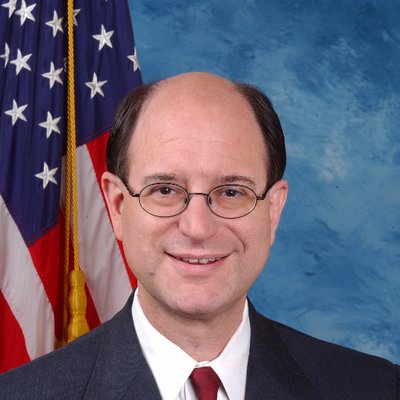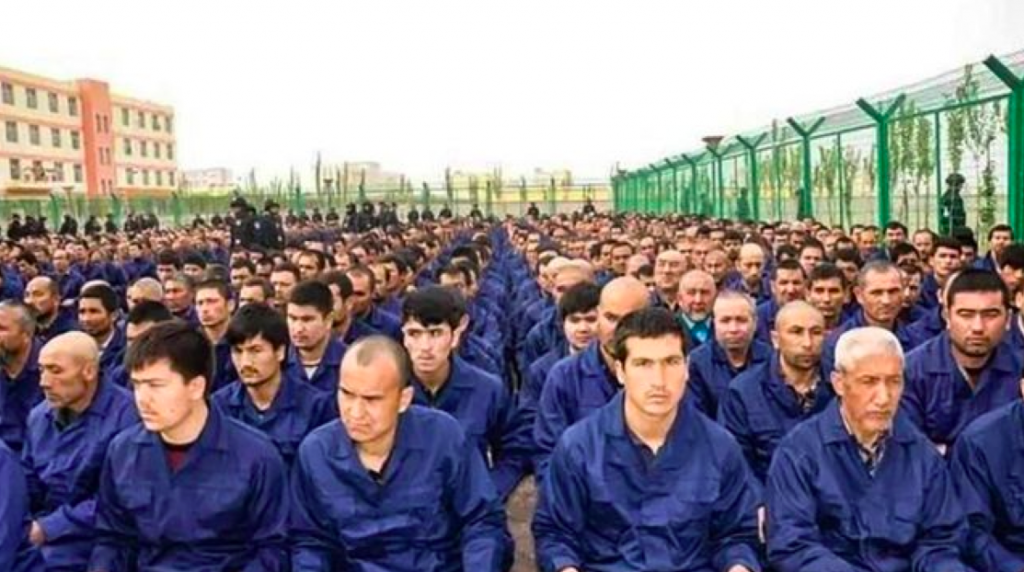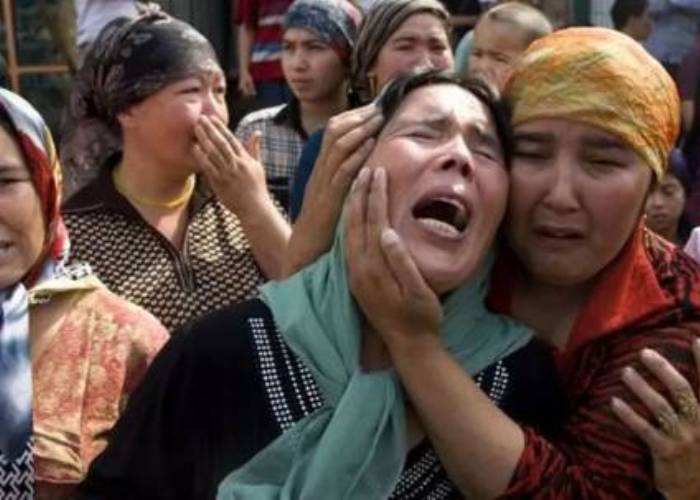China’s policy of repression against the Uyghurs continues, and finally the problem is on the global agenda.
On May 27, the US Congress overwhelmingly passed the Uighur Human Rights Act to counter Beijing’s brutal oppression of Uyghurs and other national and religious minorities in China’s Xinjiang Uygur Autonomous Region and elsewhere.
Ahead of the vote Congressman Brad Sherman, who has been very vocal on the issue, said:

“Beijing has leveraged its economic clout to silence criticism and its horrific human rights abuses. So many countries, particularly Muslim countries that always speak out when any group of Muslims is being denied their human rights, have been pressured into silence,” adding, “Today we send a message that we stand with the Uighurs, fight for the oppressed, and we will not forget.”
The legislation allows American authorities to impose sanctions against senior officials in the Chinese government suspected of persecuting Uyghurs in China. The US Treasury Department’s list of sanctioned companies includes current and former suppliers to major international brands.
The new measures impact US firms too. The US Treasury Department has set a deadline of September 30 for American businesses to complete outstanding financial transactions and trade. After this point, US companies must suspend their dealings and other joint ventures with sanctioned Chinese businesses or face penalties.
In the past year, it’s become clearer that Chinese companies are using the forced labour of Uyghurs. Products made by Uyghurs in internment camps are being sold by these Chinese firms for a profit, which is why the United States has decided to impose sanctions and penalties.
The United States says China has detained more than 1 million Uyghur Turks in labour camps. Washington recognises that Muslim Uyghurs are being repressed in China.
The legislation passed by the US Congress in May includes references to other minorities living in China – Kazakhs and Kyrgyz – who also face pressure. In China, their rights are also being violated.
Under the new law, a report on China’s minorities must be submitted to Congress every year.
The legislation also outlines political relations between the United States and China.
Enforcement of the new law will be controlled by the State Department and the National Intelligence Agency.
China has three lines of attack against the Uyghurs:
The first is the fight against radical Uyghurs – those who want independence from Beijing. China calls them “terrorists” and tries to neutralise them.
The second battle is over the resettlement of Han Chinese on the historical lands of the Uyghurs. As a result, there are frequent clashes between local Uyghurs and Chinese settlers.
The third area of attack is through the compulsory “re-education” of Uyghurs. For this purpose, Uyghurs are forcibly placed in internment camps and their labour is exploited. Although Beijing claims that the Uyghurs came to the camps “voluntarily,” the facts and observations show otherwise. No one would go to such a camp “voluntarily” given the harsh conditions.
The US Congress’s desire to act is not because of America’s new-found love for the Uyghurs, but the country’s self-interest. The US has long wanted to challenge China’s growing threat to its international leadership. Beijing’s oppression of the Uyghurs provides Washington with the perfect opportunity to toughen its policies against China.
Certainly, Beijing’s aggressive foreign and security policy has prompted the international community to pay more attention to the plight of the Uyghurs. The Uyghur problem also worries Turkic-speaking countries.
It is true that the Turkish and Turkic-speaking states do not currently press China over its severe treatment of Uyghurs. This silent approach does not sit well with the general populations of Turkey and the other Turkic republics, who remain dissatisfied with their governments’ responses to the Uyghur problem.
Interestingly, the ally of Turkey’s ruling Justice and Development Party (AKP), the Nationalist Movement Party (MHP), has publicly aired its concerns about the fate of the Uyghurs in China.
The vast majority of Uyghurs living in Turkey support MHP, which in turn makes it necessary for the nationalists to pay attention to the Uyghur problem. In a number of speeches, MHP leader Devlet Bahçeli has spoken about the difficulties Uyghurs face in Xinjiang Uygur Autonomous Region.
While China is pursuing a policy of violence against the Uyghurs, it seemingly does not care how it is perceived in Turkey. On the contrary, Beijing is trying to make Turkey and other Turkic-speaking countries forget about the Uyghur factor in their relations with China. But this is not possible.
Even in Kazakhstan, which has strong economic ties with China, the people are deeply unhappy with their neighbour’s anti-Uyghur and anti-Kazakh policies.
It is no coincidence that there are frequent protests in front of the Chinese consulate in Almaty. Protesters want information about their relatives who mysteriously disappeared in China.
The writer Elxan Şahinoğlu is a political analyst and director of the Atlas Research Center in Azerbaijan.






